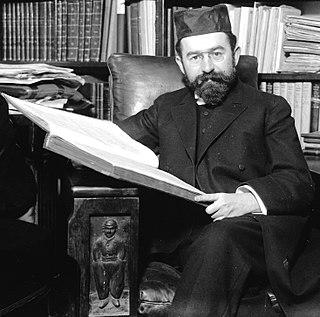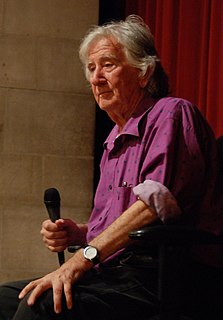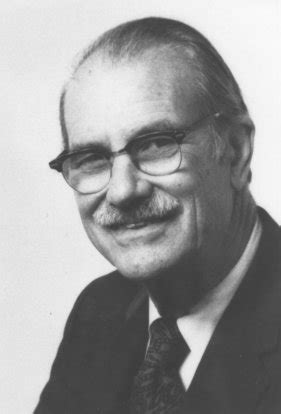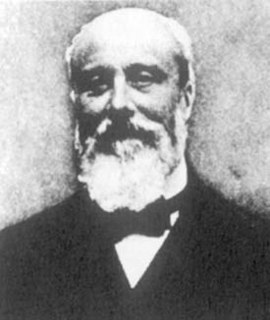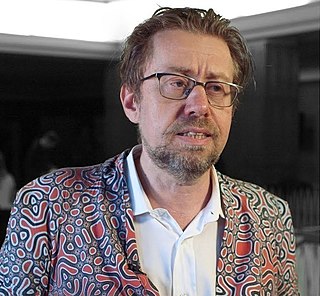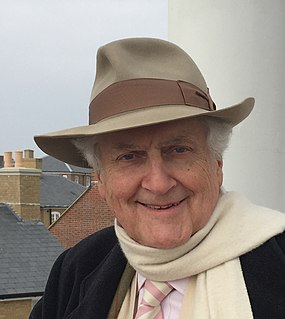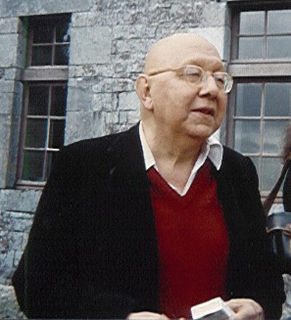Top 224 Autonomous Quotes & Sayings - Page 4
Explore popular Autonomous quotes.
Last updated on November 19, 2024.
If within the last century art conceived as an autonomous activity has come to be invested with an unprecedented stature - the nearest thing to a sacramental human activity acknowledged by secular society - it is because one of the tasks art has assumed is making forays into and taking up positions on the frontiers of consciousness (often very dangerous to the artist as a person) and reporting back what's there.
All men are equal and free: society by nature, and destination, is therefore autonomous and ungovernable. If the sphere of activity of each citizen is determined by the natural division of work and by the choice he makes of a profession, if the social functions are combined in such a way as to produce a harmonious effect, order results from the free activity of all men; there is no government. Whoever puts a hand on me to govern me is an usurper and a tyrant; I declare him my enemy.
The economy - once a great scatter of small productive units in autonomous balance, has become dominated by two or three hundred giant corporations, administratively and politically interrelated... The political order, once a decentralized set of several dozen states with a weak spinal cord, has become a centralized executive establishment which has taken up into itself many powers previously scattered... The military order, once a slim establishment in a context of distrust fed by state militia, has become the largest and most expensive feature of government.
'The anthropocene' refers to the way we live now, in a highly globalized world, characterized by a large human population and powerful technologies that allow for "action at a distance" that aggregate apparently negligible acts into powerful forces that are transforming fundamental planetary systems. In this sense 'the anthropocene' refers to a period in which nature as an independent autonomous domain comes to an end or is under serious threat.
But love's true nature remains forever beyond the grasp of all our faculties. It is far greater than any feeling or emotion and completely surpasses any act of human kindness. It is the one sheer gift of contemplation, completely unattainable by autonomous human effort. The realization of this love always remains mysterious.
Political organizations have slowly substituted themselves for the Churches as the places of believing practices, but for this very reason, they seem to have been haunted by the return of a very ancient (preChristian) and very “pagan” alliance between power and religion. It is as though now that religion has ceased to be an autonomous power (the “power of religion,” people used to say), politics has once again become religious.
When we come to the Babylonian Gemara, we are dealing with what most people understand when they speak or write of the Talmud. Its birthplace, Babylonia, was an autonomous Jewish centre for a longer period than any other land; namely, from soon after 586 before the Christian era to the year 1040 after the Christian era - 1626 years.
Word is murder of a thing, not only in the elementary sense of implying its absence - by naming a thing, we treat it as absent, as dead, although it is still present - but above all in the sense of its radical dissection: the word 'quarters' the thing, it tears it out of the embedment in its concrete context, it treats its component parts as entities with an autonomous existence: we speak about color, form, shape, etc., as if they possessed self-sufficient being.
Kurdish autonomous region of Iraq is clearly a 'client' state of the West, of Turkey and to some extent, Israel. It is shamelessly capitalist, taking land from its own people, cheating them, just in order to pump and refine huge quantities of oil. It treats Syrian refugees like animals, forcing them to make anti-Assad statements. It is turning ancient Erbil into some bizarre shopping mall with nothing public in sight. Its military top brass is mainly US/UK-trained and indoctrinated. And it provokes Baghdad, day and night.
Broadly speaking, Keynesianism means that the government has a specific responsibility for the behavior of the economy, that it doesn't work on its own autonomous course, but the government, when there's a recession, compensates by employment, by expansion of purchasing power, and in boom times corrects by being a restraining force. But it controls the great flow of demand into the economy, what since Keynesian times has been the flow of aggregate demand. That was the basic idea of Keynes so far as one can put it in a couple of sentences.
While much of modern behavioral and social science treats individuals as autonomous agents, it is absolutely clear that the way we think and act is enormously influenced by the culture in which we live. It also is clear that the major elements of modern culture-science, technology, law, music, and religion-have evolved over time in a quite concrete sense of the term. Mesoudi makes these arguments very well and his book is a very good read.
In the Native American tradition... a man, if he's a mature adult, nurtures life. He does rituals that will help things grow, he helps raise the kids, and he protects the people. His entire life is toward balance and cooperativeness. The ideal of manhood is the same as the ideal of womanhood. You are autonomous, self-directing, and responsible for the spiritual, social and material life of all those with whom you live.
In the transfer society, the general public is not only poorer but also less contented, less autonomous, more rancorous, and more politicized. Individuals take part less often in voluntary community activities and more often in belligerent political contests. Genuine communities cannot breathe in the poisonous atmosphere of redistributional politics.
Once upon a time ... the only autonomous intelligences we humans knew of were us humans. We thought then that if humankind ever devised another intelligence that it would be the result of a huge project ... a great mass of silicon and ancient transistors and chips and circuit boards ... a machine with lots of networking circuits, in other words, aping-if you will pardon the expression-the human brain in form and function. Of course, AIs did not evolve that way. They sort of slipped into existence when we humans were looking the other way.
Technologically, modern man does everything he can do-he functions on this single boundary principle. Modern man, seeing himself as autonomous, with no personal-infinite God who has spoken, has no adequate universal to supply an adequate second boundary condition; and man being fallen is not only finite, but sinful. Thus man's pragmatically made choices have no reference point beyond human egotism. It is dog eat dog, man eat man, man eat nature.
In point of fact there are a certain number of values and of forces which are of decisive importance in our world civilization: the primacy of production, the continual growth of the power of the State and the formation of the National State, the autonomous development of technics, etc. These, among others - far more than the ownership of the means of production or any totalitarian doctrine - are the constitutive elements of the modern world. So long as these elements continue to be taken for granted, the world is standing still.
When does a session of The Theatre of the Oppressed end? Never - since the objective is not to close a cycle, to generate a catharsis, or to end a development. On the contrary, its objective is to encourage autonomous activity, to set a process in motion, to stimulate transformative creativity, to change spectators into protagonists. And it is precisely for these reasons that the Theatre of the Oppressed should be the initiator of changes the culmination of which is not the aesthetic phenomenon but real life.
A self that is only differentiated - not integrated - may attain great individual accomplishments, but risks being mired in self-centered egotism. By the same token, a person who self is based exclusively on integration will be well connected and secure, but lack autonomous individuality. Only when a person invests equal amounts of psychic energy in these two processes and avoids both selfishness and conformity is the self likely to reflect complexity.
I would say digital technology probably doesn't have much impact on us so far. We've seen photographs of people from when they are alive. We see home movies. We have videotapes now and e-mails. When it's going to get interesting is in massively multiplayer online games where you have avatars (online personas). You could actually create an avatar that's semi-autonomous. It could do things for you while you get off the game to run the rest of your life.
My name is Mankiller, and in the old Cherokee Nation, when we lived here in the Southeast, we lived in semi-autonomous villages, and there was someone who watched over the village, who had the title of mankiller. And I'm not sure what you could equate that to, but it was sort of like a soldier or someone who was responsible for the security of the village, and so anyway this one fellow liked the title mankiller so well that he kept it as his name, and that's who we trace our ancestry back to.
Holland's and Kauffman's work, together with Dawkins' simulations of evolution and Varela's models of autopoietic systems, provide essential inspiration for the new discipline of artificial life, This approach, initiated by Chris Langton (1989, 1992), tries to develop technological systems (computer programs and autonomous robots) that exhibit lifelike properties, such as reproduction, sexuality, swarming, and co-evolution.
The modern world needs people with a complex identity who are intellectually autonomous and prepared to cope with uncertainty; who are able to tolerate ambiguity and not be driven by fear into a rigid, single-solution approach to problems, who are rational, foresightful and who look for facts; who can draw inferences and can control their behavior in the light of foreseen consequences, who are altruistic and enjoy doing for others, and who understand social forces and trends.
Misfortune occurs or can occur to anyone, of any sort of character. The eudaimonic has more resources to avoid it (being in autonomous control of his appetites and assumptions) and more resources to deal with it if it occurs (being better able to put it in perspective and maintain his own evenness of self-mastery). Tragedy as a dramatic form is meant to foster the ethos of sophrosyne or moderation, "nothing to excess"; it nurtures a sense of distance from the dominant illusions and delusions that may infect even aristoi.
Now these two questions Does there exist a material reality distinct from sensible appearances? and What is the nature of reality? do not have their source in experimental method, which is acquainted only with sensible appearances and can discover nothing beyond them. The resolution of these questions transcends the methods used by physics; it is the object of metaphysics. Therefore, if the aim of physical theories is to explain experimental laws, theoretical physics is not an autonomous science; it is subordinate to metaphysics.
Jazz presumes that it would be nice if the four of us-simpatico dudes that we are-while playing this complicated song together, might somehow be free and autonomous as well. Tragically, this never quite works out. At best, we can only be free one or two at a time-while the other dudes hold onto the wire. Which is not to say that no one has tried to dispense with wires. Many have, and sometimes it works-but it doesn't feel like jazz when it does. The music simply drifts away into the stratosphere of formal dialectic, beyond our social concerns.
The question is wholly other, deeper and equally relevant to all: whether we shall, by whatever means, succeed in reconstituting the natural world as the true terrain of politics, rehabilitating the personal experience of human beings as the initial measure of things, placing morality above politics and responsibility above our desires, in making human community meaningful, in returning content to human speech, in reconstituting, as the focus of all social action, the autonomous, integral, and dignified human "I."
I don't write about love because it makes for easy, passive heroes. I write about how love makes my characters more autonomous, more self-possessed, more opinionated and powerful. I write about characters who pursue relationships that make them the people they want to become. I write about love as a superpower.
Nvidia's self-driving-car business grew out of a long-standing relationship with auto companies. Car guys used Nvidia chips for computer-aided design, then used Nvidia supercomputer chips to do crash simulations. When the car guys started thinking about autonomous vehicles, Nvidia leaped at the chance to help them solve the problem.
The difference between romantic love and friendship love is that romantic love involves a lot of compromise. It is a very giving type of love. With friendship, you can be a little bit more autonomous. You are not expected to compromise, in the same way. Maybe that's why friendships tend to last longer.
What happened is that in the middle of my life I went away and in my own sense of hubris, pride, cynicism, thought, I am an autonomous being in the world, I can control things, I am God.' But my experiment at being God failed! And they do have a great saying in AA: 'Get down off the cross, we need the wood!' And the important thing is to realise you are not the centre of the universe, you are not God.
In an essay 10 years ago, I pointed out that it is utterly logical for polygamy rights to follow gay rights. After all, if traditional marriage is defined as the union of (1) two people of (2) opposite gender, and if, as advocates of gay marriage insist, the gender requirement is nothing but prejudice, exclusion and an arbitrary denial of one's autonomous choices in love, then the first requirement - the number restriction (two and only two) - is a similarly arbitrary, discriminatory and indefensible denial of individual choice.
Syria is descending into suicide. It's a horror story and getting worse and worse. There's no bright spot on the horizon. What will probably happen, if this continues, is that Syria will be partitioned into probably three regions; a Kurdish region - which is already forming - that could pull out and join in some fashion the semi-autonomous Iraqi Kurdistan, maybe with some kind of deal with Turkey.
I realized that most thoughts are impersonal happenings, like self-assembling machines. Unless we train ourselves, the thoughts passing through our mind have little involvement with our will. It is strange to realize that even our own thoughts pass by like scenery out the window of a bus, a bus we took by accident while trying to get somewhere else. Most of the time, thinking is an autonomous process, something that happens outside of our control. This perception of machine-like quality of the self is something many people discover, then try to overcome, through meditation.
When we talk about 'reproductive rights' this is what we mean. It's the difference between people as objects, and people as agents: between regarding people as pawns on the policy chessboard and recognizing them as the players, the decision-makers, the drivers of policy; autonomous individuals intimately concerned with the direction of their own lives. Under these conditions women, especially, enjoy better health and live fuller lives.
The EU might have become a large federal nation. But they would have had to do things differently. Number one, they would've had to make people feel like participants in a common project of autonomous law-giving. Much more political accountability, much more participation. That didn't happen, I think, because the movers and shakers were more concerned with economic union than political union.
In architecture, to do anything beyond object form is often treated as something extra-disciplinary - something outside the discipline that has nothing to do with art. So I'm making it clear that this is an artistic choice. It's not everyone's artistic choice. Some people should choose only to make object form because that's what gives them pleasure. But there are people for whom aesthetic pleasure comes from doing something else, and why would you deny that choice? It's another autonomous choice.
When you stand up for yourself and try to be autonomous and self-determining, you're called a lot of names that we all know and that are very common. You may lose your job. You may lose custody of your child. You may be blamed for the failure of your marriage even though it was the man who couldn't tolerate an equal relationship.
A city can only be reconstructed in the form of urban quarters. A large or a small city can only be reorganized as a large or a small number of urban quarters; as a federation of autonomous quarters. Each quarter must have its own center, periphery and limit. Each quarter must be a city within a city.
While all societies make their own imaginaries (institutions, laws, traditions, beliefs and behaviors), autonomous societies are those that their members are aware of this fact, and explicitly self-institute (????-?????????). In contrast, the members of heteronomous societies attribute their imaginaries to some extra-social authority (i.e. God, ancestors, historical necessity)
I think I'm most comfortable when I function in a parallel space that's not separate from political reality, but somehow comments on it from a different portal. The crisis in the Middle East has been ongoing and repetitive and I feel solutions on the ground have reached an impasse. It is somehow necessary to change the way we approach commentary on the subject. I do think that erecting a meta-space that functions according to its own autonomous abstractions and logic could be more effective in finding ways of dealing with the problem at hand, than using our standard tools of analysis.
Under present conditions, people are preoccupied with consumer goods not because they are brainwashed but because buying is the one pleasurable activity not only permitted but actively encouraged by our rulers. The pleasure of eating an ice cream cone may be minor compared to the pleasure of meaningful, autonomous work, but the former is easily available and the latter is not. A poor family would undoubtedly rather have a decent apartment than a new TV, but since they are unlikely to get the apartment, what is to be gained by not getting the TV?
after a generation or two of shedding the deliberate political encumbrances to war ... of dropping Congress from the equation altogether, of super-empowering the presidency with total war-making power and with secret new war-making resources that answer to no one but him, of insulating the public from not only the cost of war but sometimes even the knowledge that it's happened - war making has become almost an autonomous function of the American state. It never stops.
There is no author or legislator of the moral law. It is simply valid in itself in the nature or essence of things. We become autonomous only when we obey it, because then our will aligns itself with the objectively valid law, and our choice follows the same law as that we give ourselves. We can think of rational faculty (or the idea - the pure rational concept, not exhibitable in experience) as the legislator or author of the law because reason recognizes an objective standard, and to that extent is already aligned with objective moral truth.






